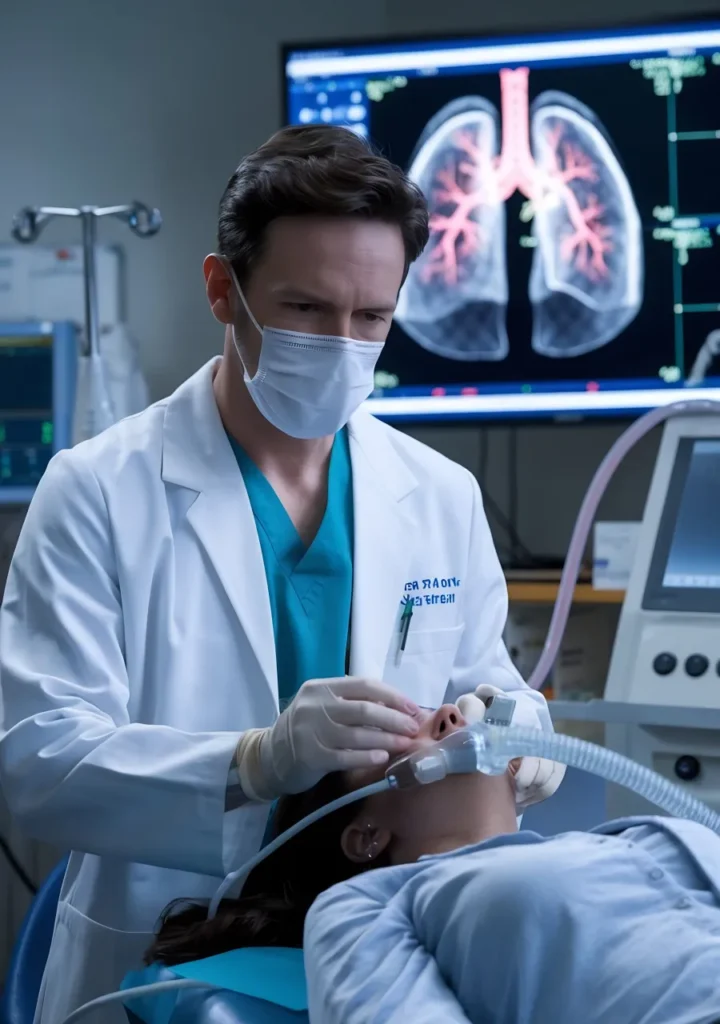
A Positive Airway Pressure (PAP) Titration Study is a sleep test used to determine the ideal air pressure settings for a CPAP (Continuous Positive Airway Pressure) or BiPAP (Bilevel Positive Airway Pressure) machine. This test helps doctors find the most effective pressure level to keep your airway open while you sleep, reducing breathing interruptions caused by conditions like obstructive sleep apnea (OSA).
During the study, you will sleep with a CPAP or BiPAP mask, and a sleep specialist will gradually adjust the pressure settings to ensure optimal airflow and comfort. The goal is to eliminate apnea episodes, snoring, and other breathing disturbances while ensuring restful sleep.
A PAP Titration Study is essential for individuals diagnosed with sleep apnea or other breathing-related sleep disorders. Finding the correct air pressure level ensures that treatment is effective, helping to:
✅ Reduce breathing interruptions during sleep.
✅ Improve sleep quality and prevent daytime fatigue.
✅ Enhance oxygen levels for better overall health.
✅ Lower health risks associated with untreated sleep apnea, such as high blood pressure, heart disease, and stroke.
✅ Increase CPAP/BiPAP comfort, leading to better therapy adherence.
PAP therapy is one of the most effective treatments for sleep apnea. This study ensures you receive the right level of support to sleep comfortably and breathe easily.
Further Questions?
If you have any questions regarding the PAP Titration Study, please contact the Sleep Study Department at 281-713-8676.
During the study, you will sleep in a sleep lab while wearing a CPAP or BiPAP mask. A sleep specialist will monitor your breathing, oxygen levels, and sleep patterns. Throughout the night, they will adjust the pressure settings to find the most effective and comfortable level for you.
No, the study is non-invasive and painless. It may take some time to get used to the mask, but the sleep specialists ensure you are as comfortable as possible. Finding the right pressure settings makes long-term CPAP/BiPAP therapy more tolerable.
Avoid caffeine and alcohol on the day of the study.
Stick to your normal sleep routine before the test.
Bring your own CPAP/BiPAP mask if you already use one.
Wear comfortable sleepwear and bring personal items for comfort.
Your sleep specialist will review the results and provide a recommended pressure setting for your CPAP or BiPAP machine. Your doctor will then adjust your device accordingly, ensuring optimal treatment for your sleep apnea.
If you experience discomfort with your PAP therapy, talk to your doctor. Adjustments can be made to the pressure settings, mask type, or humidification levels to improve comfort. Many patients take some time to adjust, but with proper settings and support, PAP therapy can significantly improve sleep quality.
Copyright © 2025 PCCSS. All Rights Reserved.